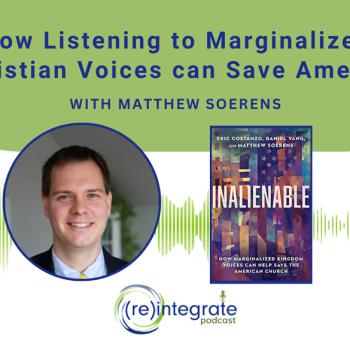We need to be very careful in how we articulate things.
 I’ve been teaching stewardship in church ministry for over two decades now. I don’t know who came up with it, but perhaps the best way I’ve experienced helping people assess their stewardship has been by articulating it in three areas: Time, Talents, and Treasure. Church leaders have come to realize that what people have been placed in charge of in their personal lives includes not only their money but also their gifts and schedules.
I’ve been teaching stewardship in church ministry for over two decades now. I don’t know who came up with it, but perhaps the best way I’ve experienced helping people assess their stewardship has been by articulating it in three areas: Time, Talents, and Treasure. Church leaders have come to realize that what people have been placed in charge of in their personal lives includes not only their money but also their gifts and schedules.
Amen to that.
But here’s the problem:
I, like most pastors in the evangelical subculture, have far too often succumbed to false dualism in how we articulate this important concept.
False dualism is when we make “spiritual” things more important than “secular” things, creating a false hierarchy where church-related or evangelism-related aspects of the Christian life are seen as more important (or even that which is only important) than other aspects of life (like work, education, leisure time, etc.). Contrary to a dualistic Christianity, we should be articulating that Christ is Lord over every aspect of our lives.
(I’ve written extensively on False Dualism. Check out “Dualistic Christianity and the Church,” “Secular/Sacred Dualism is Destroying Our Mission,” “I Don’t Believe in Being Platonic,” “Searching for Happiness but our Dualism Gets in the Way,” and “Who is to Blame for the Secularization of our Culture?“)
A faithful articulation of Christian ministry does not create a false dualism between things seen as “spiritual” over against things seen as “secular.” The mission of God is about the redemption of every aspect of life!
So let’s look at how we often articulate “Time, Talents, & Treasure” and how a non-dualist articulation expands this articulation.
Being a Steward of Our Time
Dualist Articulation:
“Give God your time – be sure to have a daily quiet time, reading your Bible and praying. Reach out to your neighbors and your coworkers. Spend more time at church-related ministries and events. Don’t let your work take time away from what’s important. Don’t waste away time doing too many leisure activities.”
Non-Dualist Articulation:
“Yes to that! Create a foundation for your life based on the Bible and prayer. Love your neighbors and coworkers and provide them opportunities to see the goodness of God in and through your life. Don’t put your work in a separate category from God so that work takes away from your life in Christ. Don’t create a false dualism – reframe your daily routines in light of how all of your time is participation with God’s redemption of all things. Your vocation is not in competition with your spiritual life; it is the very way you work in God’s mission in the world. Even your leisure time is a means of refreshing so that you can better participate in God’s mission. Reject any bifurcation of life into that which is ‘sacred’ and that which is ‘secular;’ make all of your time ‘sacred.'”
Being a Steward of Our Talents
Dualist Articulation:
“God has given you spiritual gifts to be used in the local church. Do you have the gift of leadership? You need to become an Elder. Do you have the gift of teaching? Teach a Sunday School. Do you have the gift of administration? Help organize one or more church ministries. Don’t waste your life. Don’t pursue what the world pursues with their talents. Pour your talents into ministry, where it will bear real fruit – people coming to faith in Jesus Christ.”
Non-Dualist Articulation:
“Yes, use your talents for the benefit of your local congregation. Serve on boards, lead ministries, care for your brothers and sisters in Christ. Reach out to those who do not know Jesus. But embrace that your calling (that is, your vocation) is out there in the world. You have talents that are meant to transform the world around you. You have been placed in businesses or other institutions to do God’s work – right there! Do not minimize this calling on your life. Do not demean this calling by thinking it is less worthy than your contributions in your local church. The gifts that the Holy Spirit has given you are to be used for the common good, not just limited to church ministry. The fruit of your labor is anything that contributes to the flourishing (shalom) of those around you. Be intentional in seeking the common good in and through your work. You are given talents to carry out your calling in the world, which most likely is a different calling than your pastor. So, don’t feel guilty about that.”
Being a Steward of Our Treasure
Dualist Articulation:
“God is the owner of all of your money and assets. You are a steward of this treasure, not the ultimate owner. Therefore, give God the first fruits of your possessions. Give to your local church at least a tenth of your gross wages, not the left-overs.”
Non-Dualist Articulation:
“Yes, that. Your money is not your own, it is a gift from God that you steward on his behalf for the good of others. But all of life is meant to be worship. Every aspect of who you are and what you do is to be given to God “as a living sacrifice, holy and pleasing to God—this is your true and proper worship” (Romans 21:1). So, as the Old Testament people of God brought the first fruits of their work to God as sacrifices of worship, so too we should come on Sunday and offer our work to God. The symbolism is strong: I bring the best of the fruit of my labor into worship and commit it to God.
Stewarding treasure also means making wise financial decisions. It means that we should critically evaluate how American consumerism and materialism are shaping why we purchase things. It means making good investments – because all the finances in your charge, not just your charities, are given to you for the sake of the world. It also means making wise business decisions.
How can we purposefully and intentionally be more fully aware of dualistic language in how we articulate different aspects of the Christian life?
Image by Aaron Patterson. Used with permission. Sourced via Flickr.
Stay in touch! Like (re)integrate on Facebook:

















